Which Nonprofit CRM Has The Best Return On Investment?
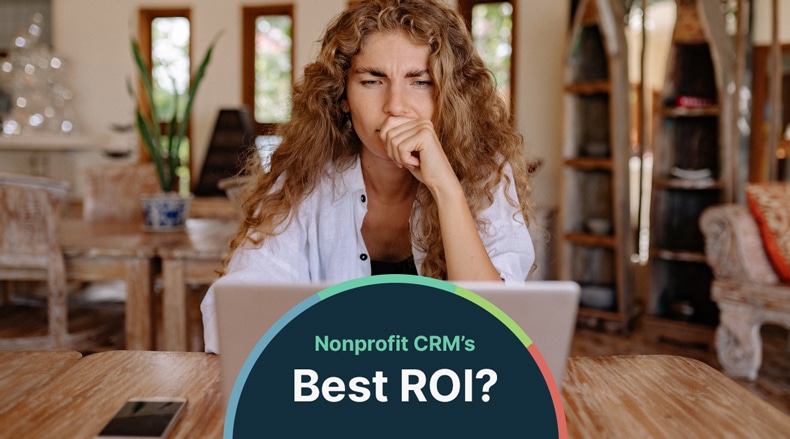
A CRM for nonprofits, or nonprofit CRM, is a platform that helps organizations understand and maximize their relationships with their donors. The donor software is a type of nonprofit database that organizes donor data, identifies donor trends, and makes recommendations to increase the likelihood of receiving future donations.
Nonprofits use a CRM to manage their contacts, donors, and other supporters. The right CRM can help nonprofits reduce aggravation and save time and resources. Some of the benefits of CRMs include task automation, easy-to-access donor information, contact records, task reminders, and actionable analytics and reporting.
When it comes to choosing the CRM that’s best for your nonprofit, it’s important to consider the features, integrations, and support that meet your organization’s needs. In this post, we’ll share some of the best nonprofit CRM software solutions, as well as data from G2’s Fall 2020 Nonprofit CRM Results Index, which is determined by reviews from verified customers.
1. Bloomerang
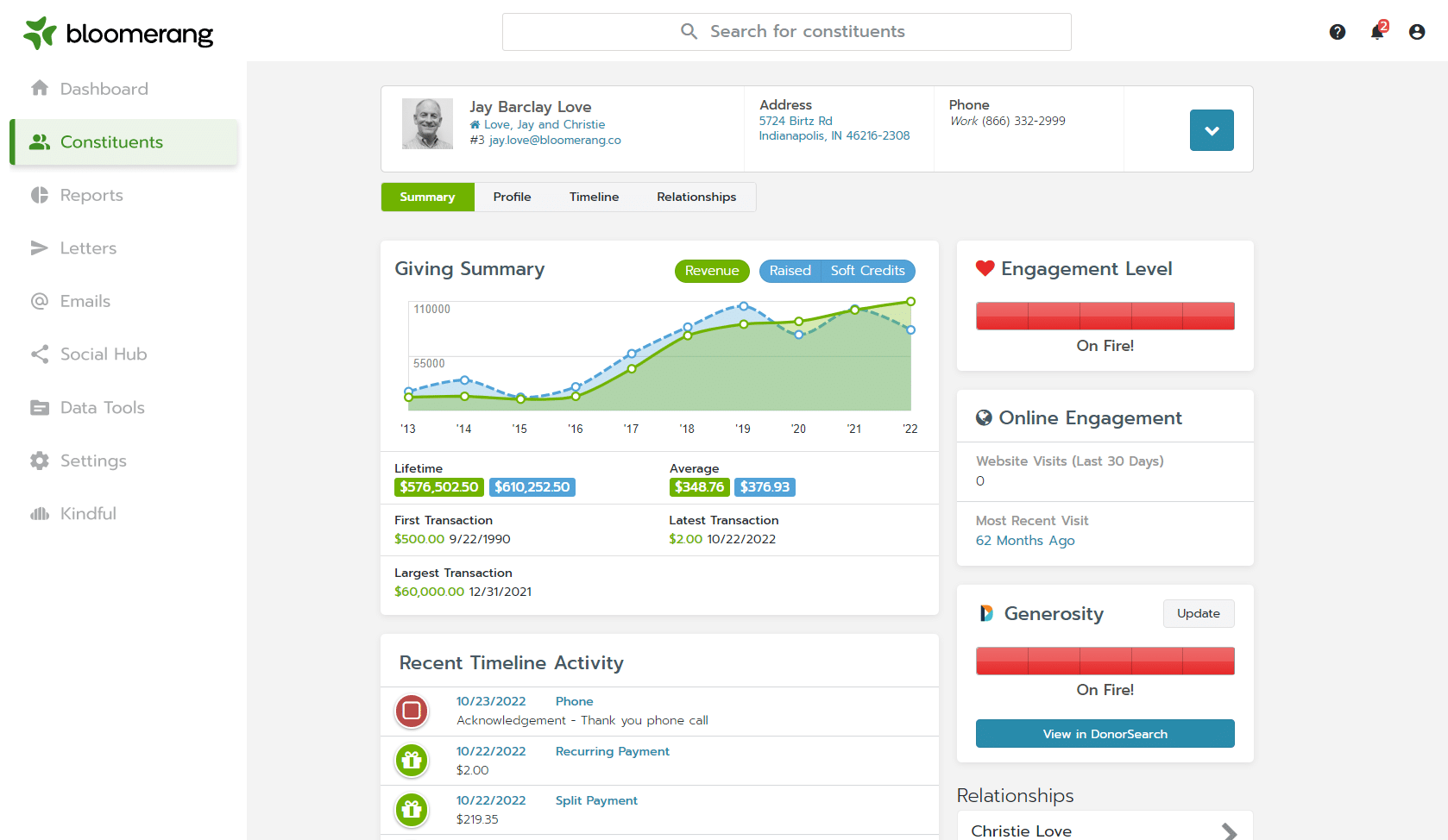
Best for: Nonprofits looking for an easy-to-use interface that focuses on donor retention and increasing revenue through consistent communication.
Features: Bloomerang’s features include built-in email marketing software and easy-to-use pages that display donor retention and communication timelines.
Integrations: Bloomerang offers integrations through Zapier which gives you access to the email marketing software and accounting applications that already partner with Zapier.
Results: Based on G2’s Nonprofit CRM Results index, Bloomerang users were highly likely to recommend the software and reported just over 2 months to go live with an estimated 12-and-a-half month return on investment.
Pricing: Monthly, contact-based. $119/month for 1,000 contacts.
2. Salesforce for Nonprofits
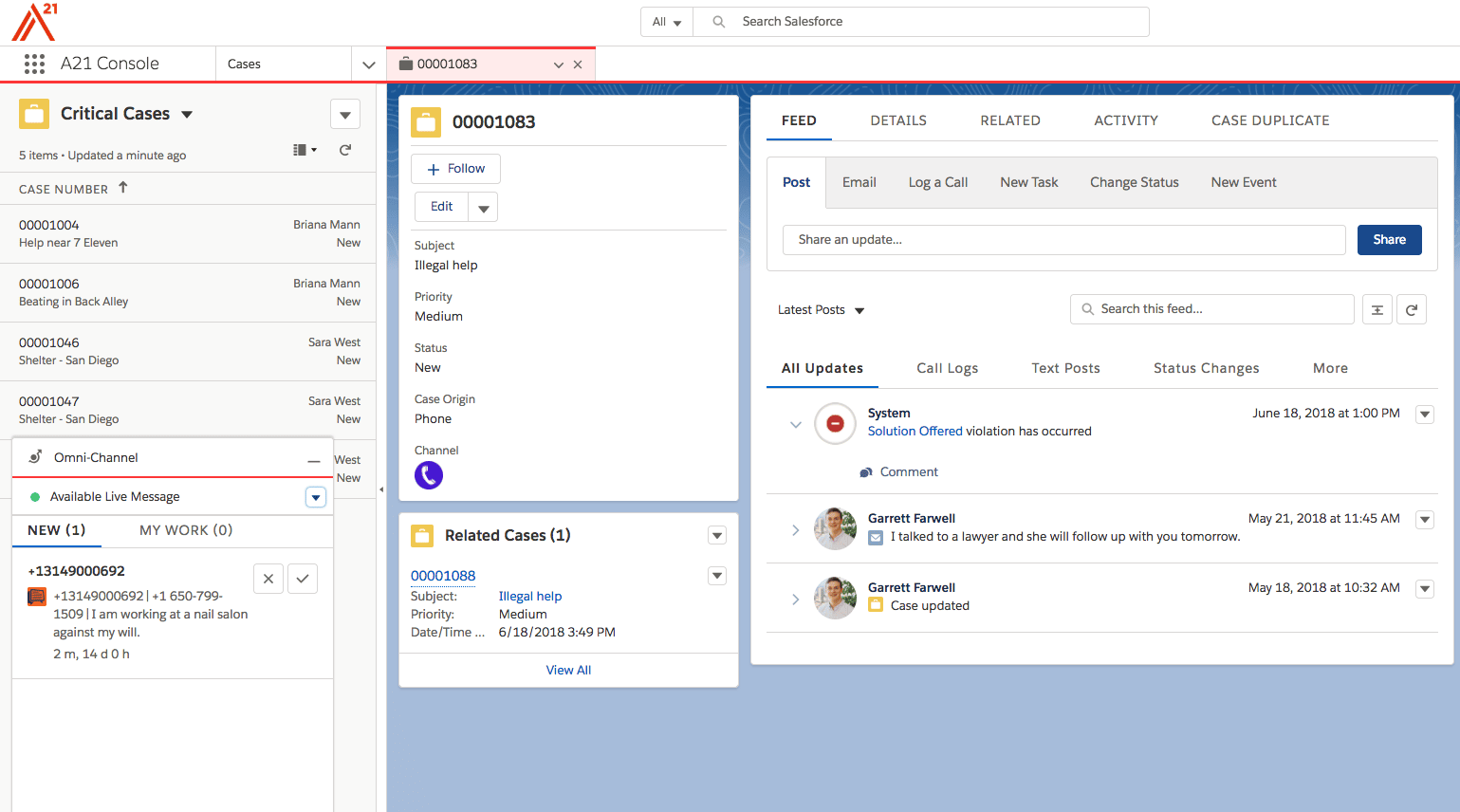
Best for: Larger nonprofits that have someone on their team already familiar with Salesforce. Because they offer a completely custom-built experience, Salesforce caters to nonprofits that want the freedom to create their own CRM experience from scratch.
Features: Salesforce has CRM features for marketing automation, donor reporting, and analytics.
Integrations: Salesforce offers integrations for email marketing, finances and accounting, and internal communication.
Results: Based on G2’s Nonprofit CRM Results index, users reported they were able to go live in just over 6 months and expected a return on investment in just over 19 months.
Pricing: User-based. Through the Power of Us Program, eligible nonprofits receive 10 free subscriptions and discounts on paid features.
Learn More About Salesforce for Nonprofit
3. NeonCRM
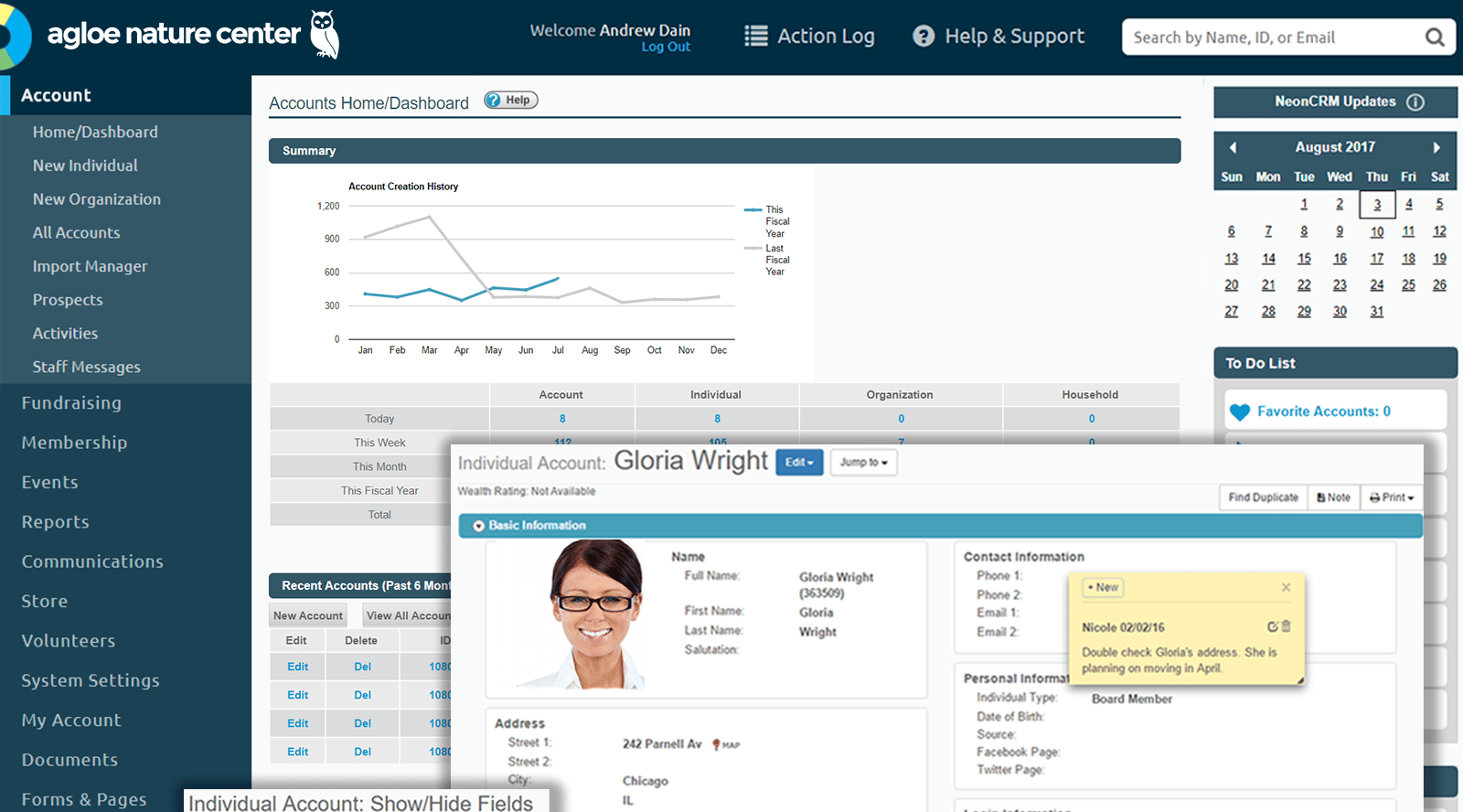
Best for: Nonprofits that are looking for an all-in-one solution for volunteer and membership management. Though NeonCRM has a more limited suite of features, their built-in model works with nonprofits that value an in-house software experience.
Features: NeonCRM has features for community management, fundraising and donation, and donor tracking.
Integrations: NeonCRM offers integrations for finances and accounting, database optimization, and digital fundraising.
Results: Based on G2’s Nonprofit CRM Results index, NeonCRM users reported a low user adoption but estimated a 12-month return on investment in just under 3 months.
Pricing: Monthly, contact-based. $99/month for 1,000 contacts.
4. Raiser’s Edge
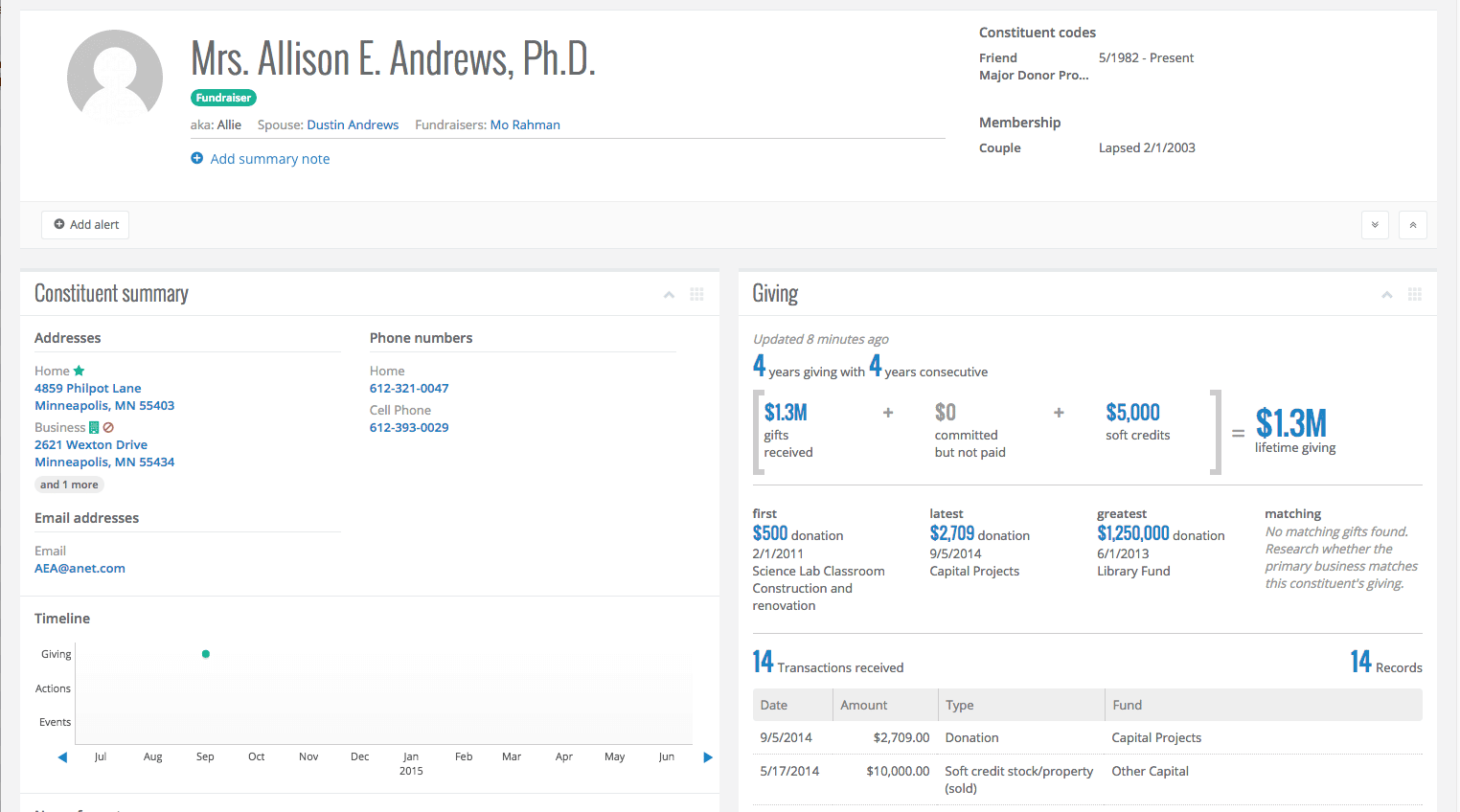
Best for: Large nonprofits looking for a highly-customizable user experience and who have the capacity to accommodate a steep learning curve and time-consuming customization.
Features: Raiser’s Edge has features that allow you to find new supporters and develop comprehensive donor profiles, including suggested ask amounts and donors at risk of lapsing.
Integrations: Raiser’s Edge offers most of their integrations through their parent company, Blackbaud. These include prospect donor research, comprehensive reporting, and social media marketing tools.
Results: Based on G2’s Nonprofit CRM Results index, users reported that Raiser’s Edge met their requirements but waited almost two years for a return on investment.
Pricing: User-based. Starts at $5,000/user with additional fees for training and support.
Learn More About Raiser’s Edge
5. eTapestry
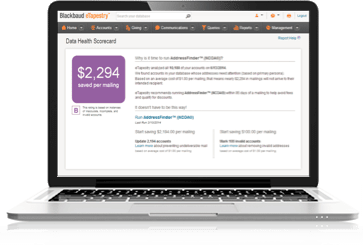
Best for: Nonprofits that are already familiar with the eTapestry format or prefer an old school approach to online giving.
Features: eTapestry’s features allow you to track and manage donor relationships and organize fundraising initiatives.
Integrations: Opting for an in-house approach, eTapestry limits the need for integrations with a native email marketing software and built-in reporting. This can be attractive if you already love the eTapestry interface but frustrating if integrating with the tools you already use is important to you.
Results: Based on G2’s Nonprofit CRM Results index, users’ estimated return on investment was only 8 months with just over 3 months to go live.
Pricing: Monthly, functionality need-based. Starts at $99/month with additional fees for more functionality.
6. DonorPerfect
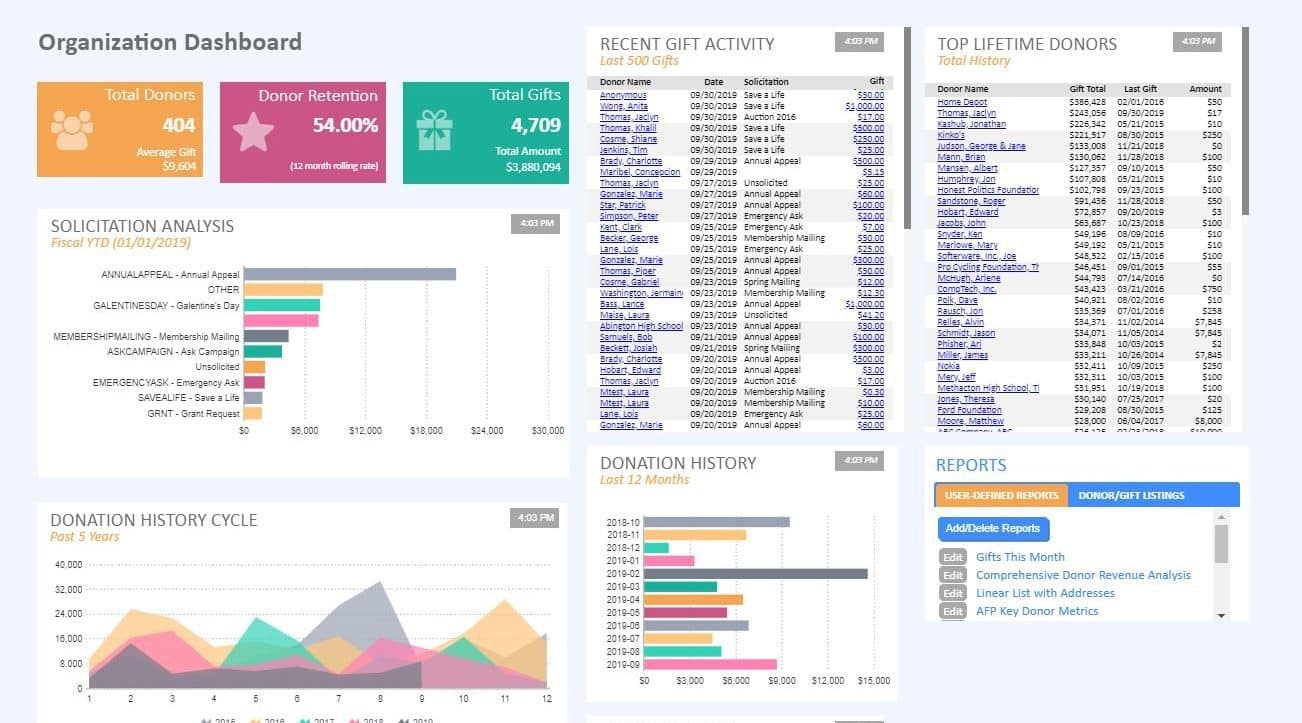
Best for: Nonprofits that want limitless user access and a CRM software that organizes donation data in one place.
Features: DonorPerfect has features that allow you to synchronize payment processing and data entry, customize reports based on donor retention and revenues, and communicate in several different ways.
Integrations: DonorPerfect offers integrations for email marketing, accounting, and e-commerce.
Results: Based on G2’s Nonprofit CRM Results index, DonorPerfect boasted high scores with users saying they were highly likely to recommend. Users reported it took them over two months to go live.
Pricing: Monthly, contact-based. Starts at $89/month for 1,000 contacts.
How do I choose my nonprofit’s CRM?
Now that you know some of the top CRMs for nonprofits, how do you choose the one that’s best for your organization? We recommend that you consider the following questions to help you compare. Make sure you bring other team members into the discussion who will use your CRM like your executive director, development director, donor relationship manager, and database manager.
What features do we need?
- Which ones need to be built-in?
- Which ones can we integrate through another software provider?
What integrations do we need?
- What software are we already using, or do we plan to use?
- Which CRMs will integrate with our software?
One resource we’d recommend is a Data Audit Checklist which will help you identify all your data sources that you’ll want to bring together.
What’s our price range?
- What fees does the CRM provider charge?
- Will our CRM pay for itself over time?
- Do we want to invest in additional features like wealth screening or a monthly NCOA scrub?
What does the CRM provider offer for onboarding?
- Will they help us migrate our donor data?
- How much help will we need with our data migration?
- Is there someone on our team who can take point on this?
What support does the CRM provider offer?
- Is it free?
- Do they have email and phone support?
- Is there a Help Center?
Will we need any consulting services with our CRM?
- Do we need help managing our donors?
- Do we want our CRM to offer fundraising consulting?
- What does the CRM provider offer to help set us up for success?
What are other people saying about the CRM?
- Are other organizations having success with the CRM?
- Does the CRM have positive reviews on reliable review sites?
Once you take all these questions into consideration with your team, pick your top two or three CRM providers, and take the step of scheduling a call with each provider. After that, it’s just a matter of choosing the one that makes the most sense for your team!
Schedule a live demo with our partner Bloomerang, and we’ll show you how easy it is to create and automate reports, utilize online and offline fundraising tools, quickly integrate and access all your data, and ultimately create more time to engage your donors.